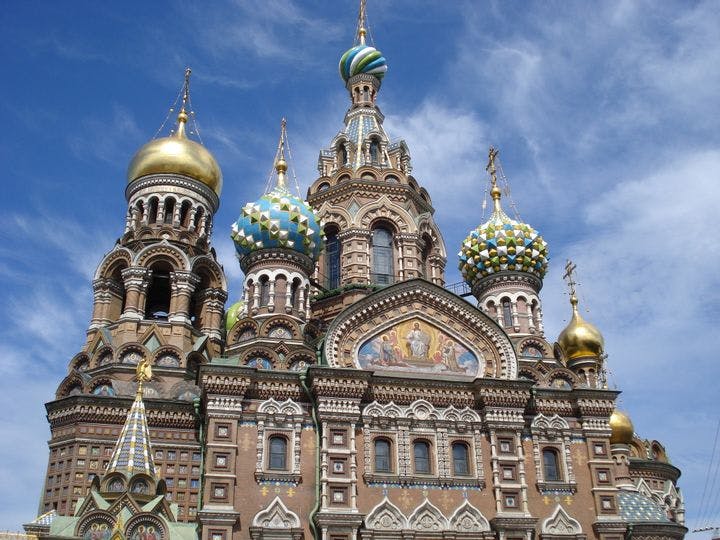Fall 2009
Russia's Casual Christians
– The Wilson Quarterly
The Orthodox Church may be experiencing a resurgence in Russia, but the country remains highly secular.
Since the fall of the communist regime in 1991, the number of monasteries in the former Soviet republic of Russia has grown from 22 to 804, the number of parishes from 7,000 to 30,000, and the proportion of Russians describing themselves as Orthodox from 20 to as high as 80 percent. The numbers are impressive, but John P. Burgess, a Presbyterian minister and a professor at the Pittsburgh Theological Seminary, suggests that the resurgence may have as much to do with nationalism as with religious zeal.
Many former comrades believe that to be a true Russian is to be Orthodox. In Moscow alone, the number of churches has increased from 40 to 872. But priests say that five percent of the population, at most, regularly attends. More than 80 percent of Russians don’t fast at all during Lent, ignoring an important rule of the faith. And although the proportion of Russians who said they intended to fast increased in a recent poll, only 30 percent reported that they considered fasting a spiritual exercise. The rest characterized it as a cultural tradition, or a health measure, or a Russian legacy that no longer has special meaning. In the same poll, close to half of Russian atheists (42 percent) described themselves as Orthodox.
Like many Americans, Russians often believe in a divinely given national exceptionalism. Russians think they are “not subject to the vices of other nations but are uniquely able to realize a more perfect political order, which God calls them to offer to the world.” When Constantinople fell to the Ottoman Turks in 1453, an Orthodox abbot told Czar Vasily III that the czar was the last remaining “lord and protector of the altars of God.” “Two Romes [Constantinople and Rome itself] have fallen,” the abbot said. Russia stands, “and a fourth there will not be.”
Burgess, who lived and studied in St. Petersburg during 2004–05, says that when Russians think of morality, they are more likely to think of the family than of religion. Only four percent of Russians say that the church should shape moral values. He disputes John and Carol Garrard’s argument in Russian Orthodoxy Resurgent (2008) that the Orthodox Church has replaced the discredited social ideology of Russian communism as surely as the Emperor Constantine substituted the “symbols of Christianity for those of pagan Rome.”
Burgess writes that the Orthodox Church may be resurgent, but the country remains highly secular. The church has aligned itself with the current Russian political leadership, just as it did historically. It may have experienced a “miracle of rebirth,” but the church owes its resurrection chiefly to its role as a bulwark of Russian state power.
* * *
The Source: "Orthodox Resurgence" by John P. Burgess, in Christian Century, June 16, 2009.
Photo courtesy of Flickr/Luis Guillermo Pineda Roda
